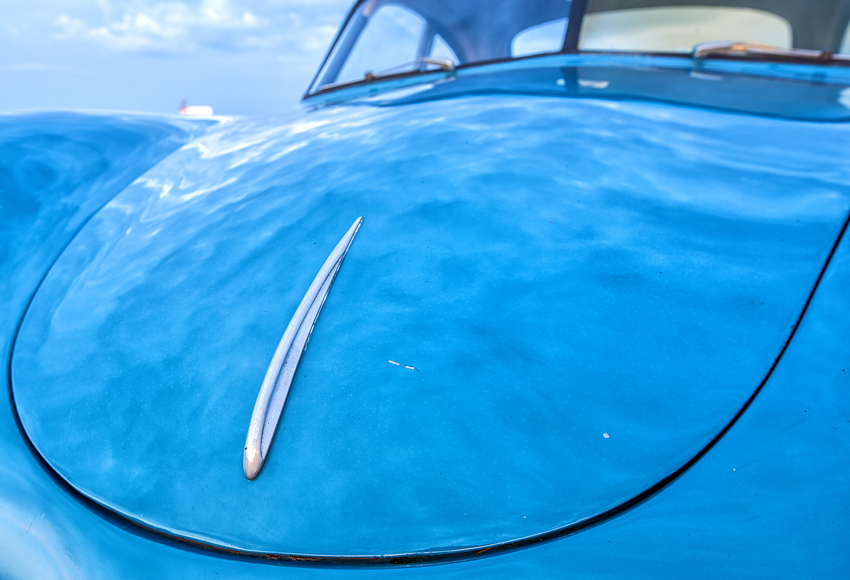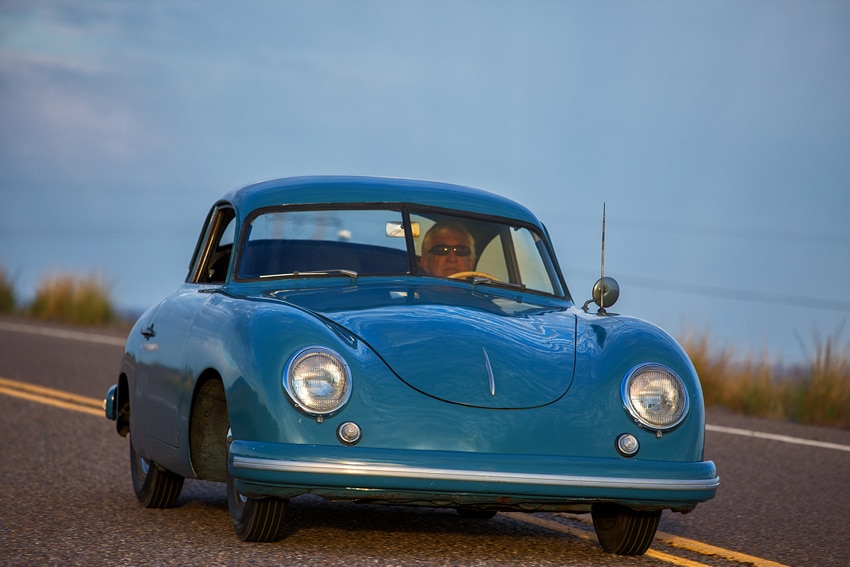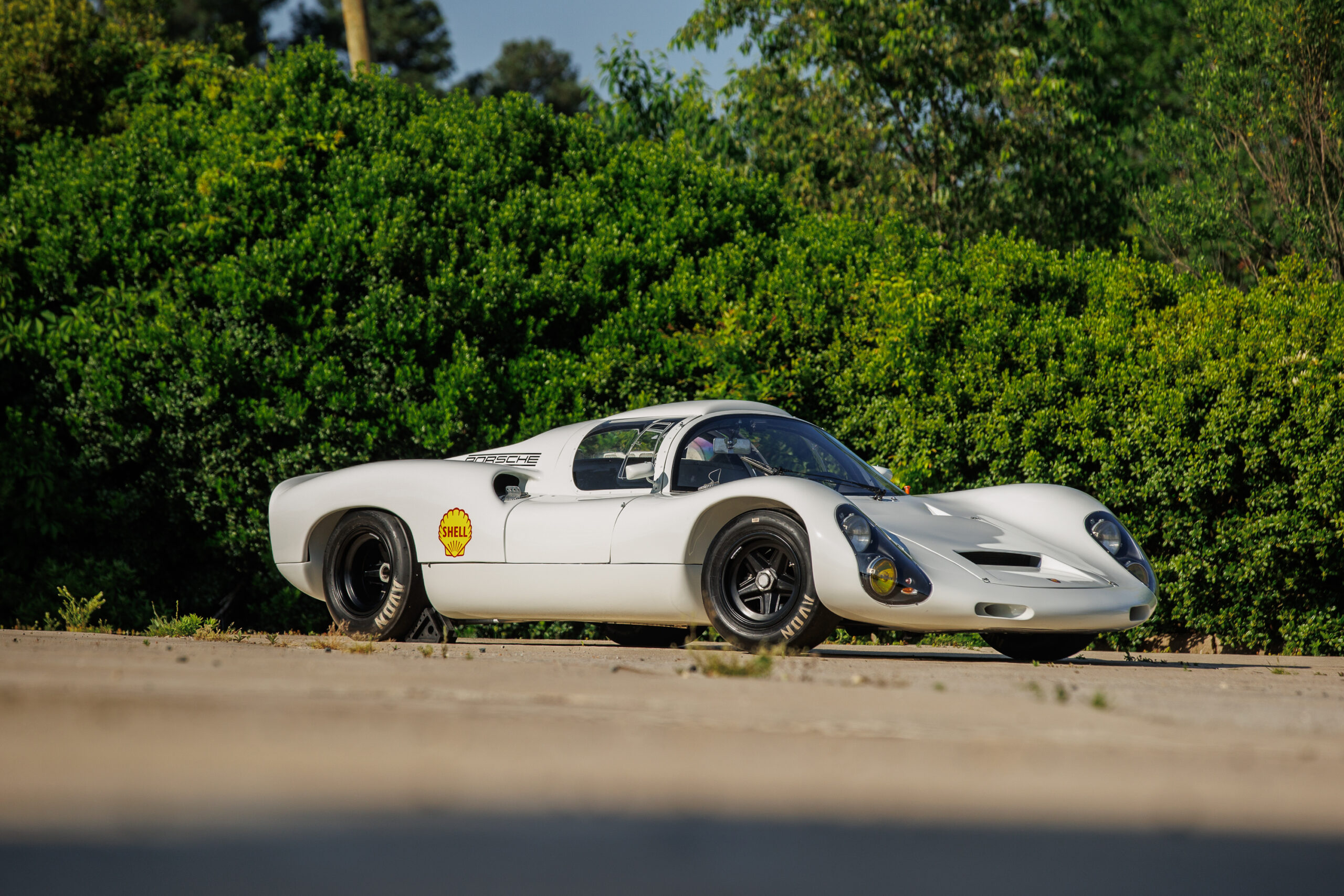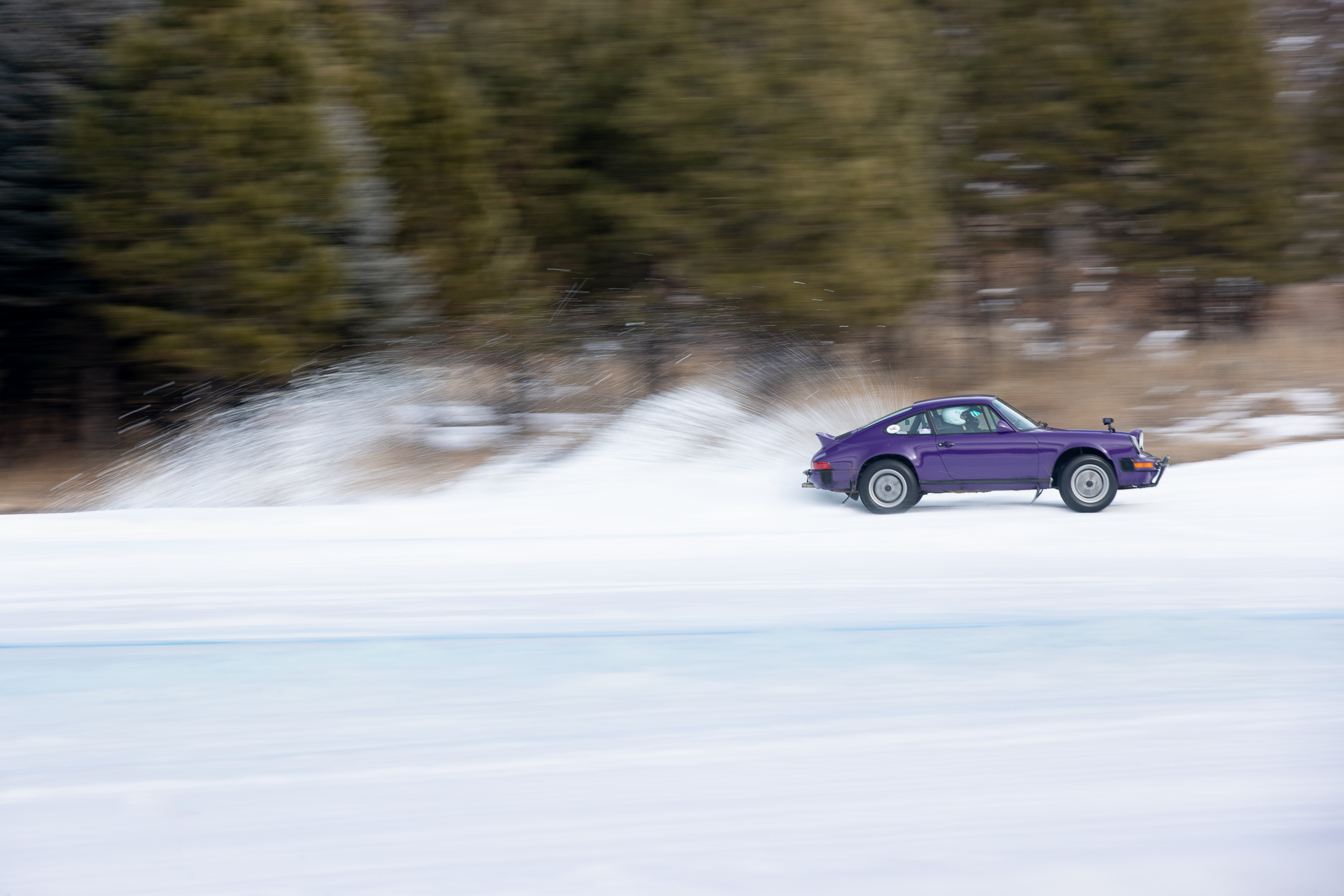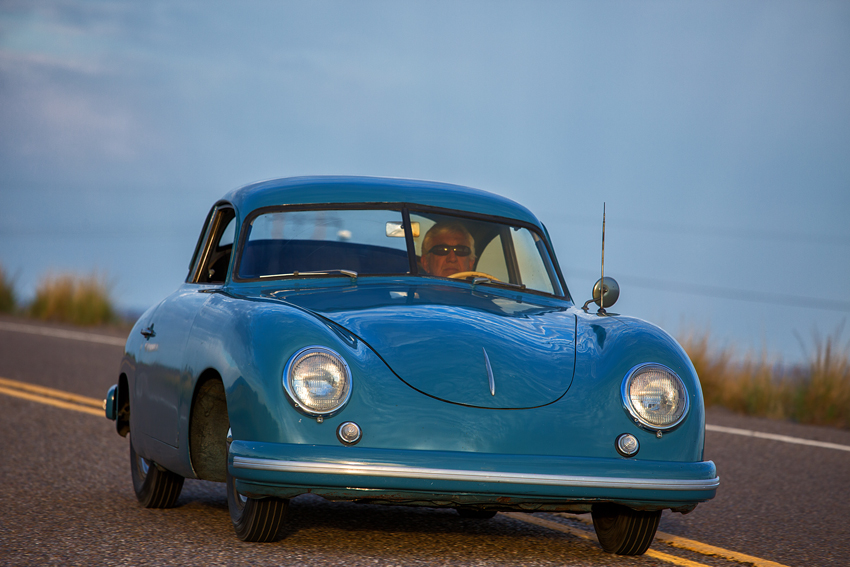
Cruising the high desert and mountain roads of New Mexico in the 1951 Split-Window Pre-A 356, one almost forgets what year it is. Though the car is slow and imprecise by today’s standards, there’s so little traffic one forgets what year or even decade it is. The dawn light gives the car an ethereal glow. Its sensuous, curving shape somehow complements the harsh environment as if to say “I belong here.” The small 1500cc air-cooled, metallic engine noises precede its visual presence. It’s an experience of ageless beauty.
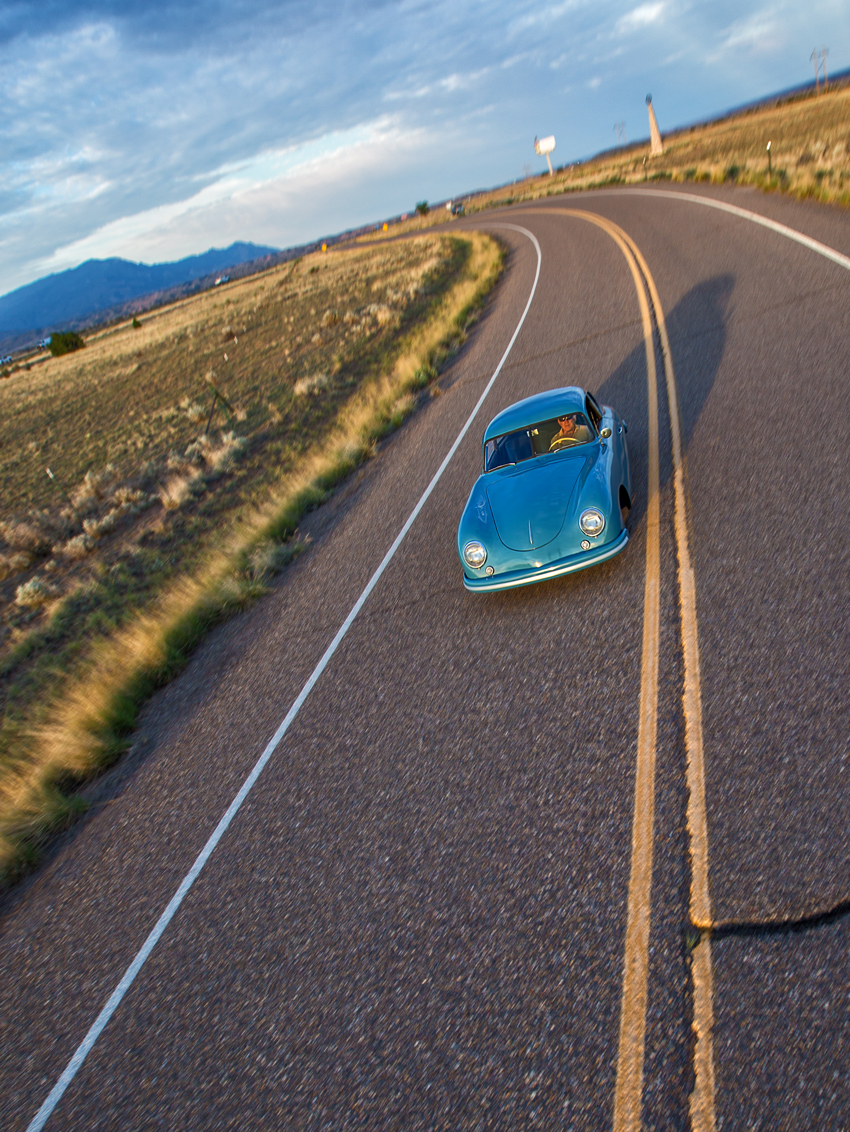
Never restored, somehow this car managed to escape most of the ravages of misuse and poor storage suffered by so many. While it does have a Porsche-issued certificate of authenticity, many of its historical records have slipped through the cracks. Its current owner has had it in his garage for nearly 20 years. He bought it from a relative, who had the car in dry storage for 20 years prior to that. It’s thought to have been a California car for most of its life, mostly likely sold by Max Hoffman to Johnny von Neumann. But any other details have fallen by the wayside. Its serial number – 10947 – shows it to be one of the earliest Porsches in the United States.
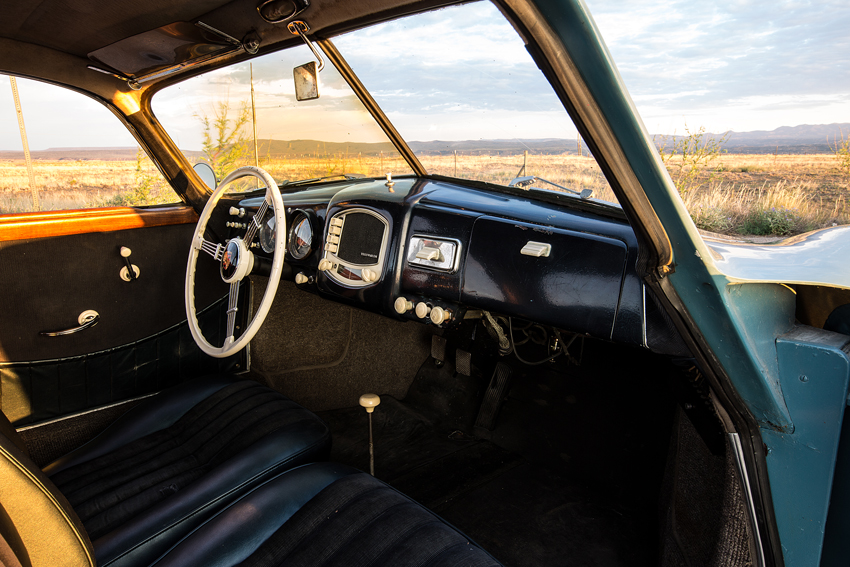
Looking at the worn steering wheel and comfortably soft seats, you know it’s been driven…sometime…somewhere. One can only imagine going in it to the cinema to see The African Queen or Singin’ in the Rain and smiling as people watch it glide by in its beautifully sculpted glory. Its exterior is smooth, devoid of any emblems or badges.
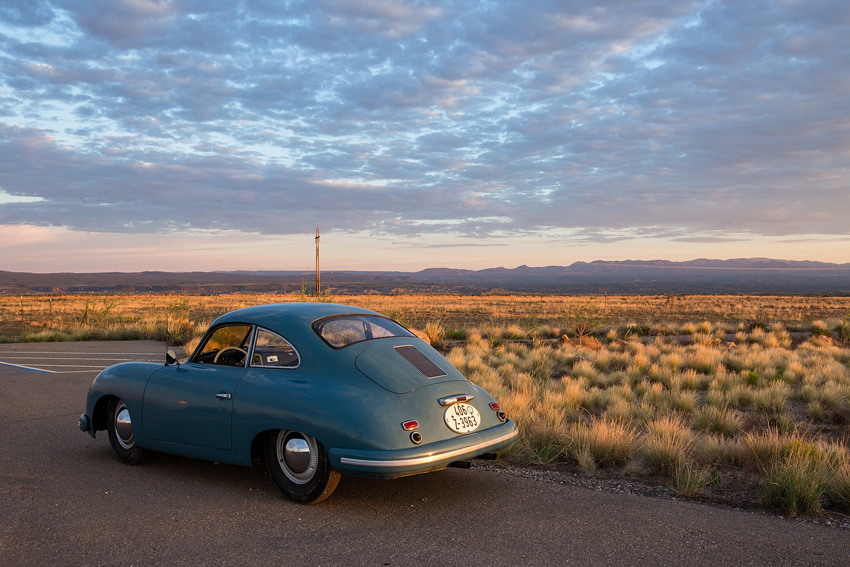
Comparing its design features with its automotive contemporaries, there are none of the scoops, foils, or large grilles found on its rivals, such as the Ferrari 340 America or Maserati A6G Frua Spyder. An Aston Martin DB2 would have looked positively clunky sitting next to the little Porsche. Maybe no one thought of it then, but, viewing it now, more than 60 years after its design, Ferry Porsche and Erwin Komenda seem to be geniuses on the level of Einstein or Hawking, able to shape something eternal from such limited means and with so little worldly influence.
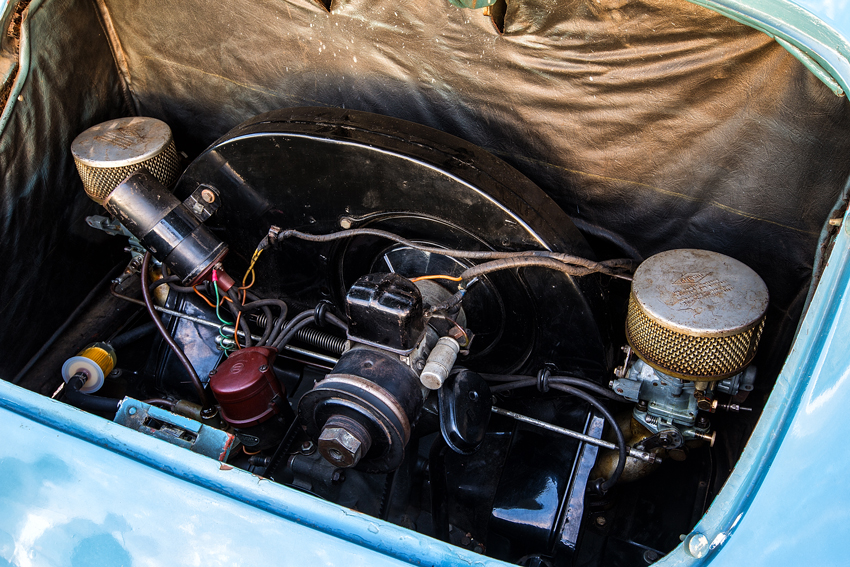
It’s powered by an engine Typ 527, which means that it’s a “normal” engine, delivering about 55 horsepower when new. If it were a Super, with a Typ 528 engine, it would have had another 15 horsepower, a significant power boost for its day. Mention of the Hirth roller-bearing crank immediately shifts Porsche discussions to the later Carrera four-cam engine. Those in the know remember that it was used earlier, on the Typ 527 as an innovation that allowed for larger displacement engines without having to produce larger cases. Since the crankshafts were assembled in pieces, the piston connecting rods could be cast in a single piece, meaning no room was needed inside the case to clear rod-end bolts.
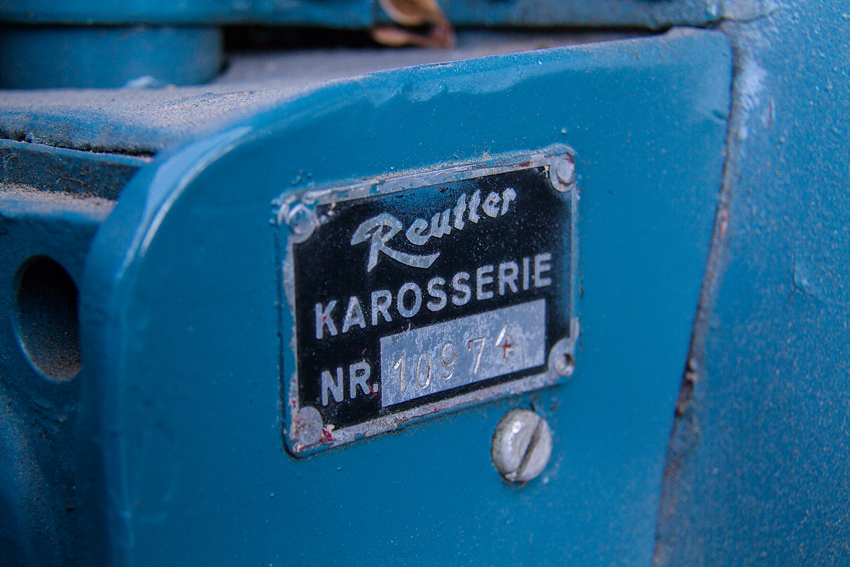
According to its certificate, its original paint was Fish Silver Grey. There are only a couple of key spots that show signs of a repaint, many, many years ago, to Azurblau. Oddly, where the paint has minor scratches, none of the supposedly original Fish Silver comes through. So the mystery builds. The car shows no signs of any damage, rust, or other bodywork of any kind.
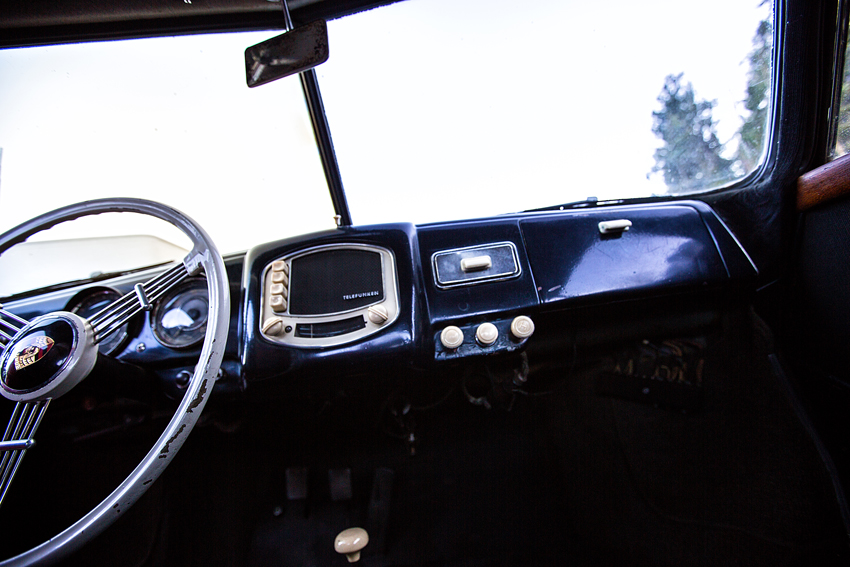
Inside, this Porsche was optioned with Blue Leatherette interior and a reclining right seat.
The prominent Telefunken Auto-Super ID-52-V radio sits right in the middle of the dashboard as if it’s a work of art, like something out of a Flash Gordon movie. Paint on the dash is somewhat crinkled and cracked – revealing the car’s age – but all the appropriate knobs, buttons, and pieces are in place. The optional tachometer, reading up to 6000rpms, is right where it should be. While we take it for granted these days, a tach was a necessary tool for driving a small displacement engine – especially one with a Hirth roller-crank – both for performance and engine longevity. Keep the revs constant and you’re safe, let it lug and it would get expensive.
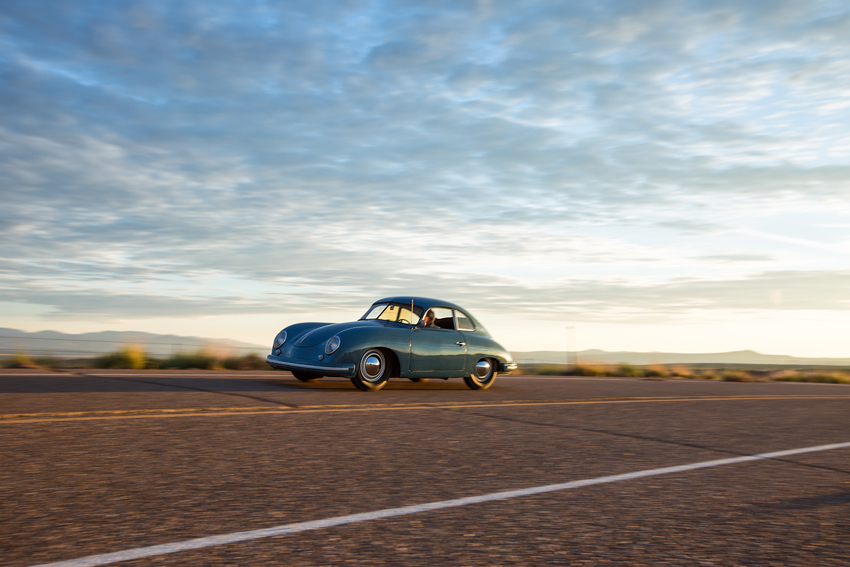
Its steering wheel is the standard one with three sets of four aluminum spokes, and no horn ring. Though they originally came in white with a plain horn button, this one shows some wear. The horn-button bears the now-famous Porsche crest, which was in development during the production of model year 51, but which might have been included during assembly depending on which month the car left the factory. Between the tach and speedometer are three warning lights; one is for oil pressure, one indicates the turn signal, and a red one alerts the driver to issues with the car’s generator or that the high-beam headlamps were in use. Between the seats is the straight, simple gear-shift lever indicative of the much maligned, non-synchro “crash-box.” No worries; just pay attention to the sound of the engine. It slips right into gear every time.
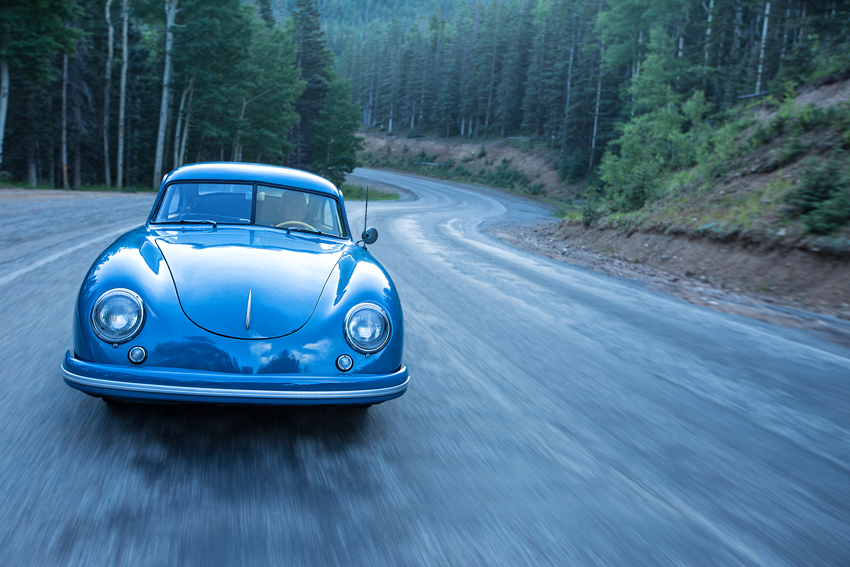
Gradually, we climb out of the desert, into the clouds. Away from the long straights, up into the curves; the car gasps for air, but moves steadily, surely. It was made for the Alps. So what if it’s not so fast going up. The drive down will show its true strengths in corners. Maybe not up to today’s standards, sure. But we’re not in a hurry. We can afford to float back in time. It’s more than just an old car, it’s a reminder of something good, something better inside us all. Perhaps that same feeling of hope for the future the Porsche family of designers and engineers expressed in 1951. And that enthusiasm we might have shared, driving something so pure, so honest, and so beautiful. It’s as if the car has become part of the sky.
